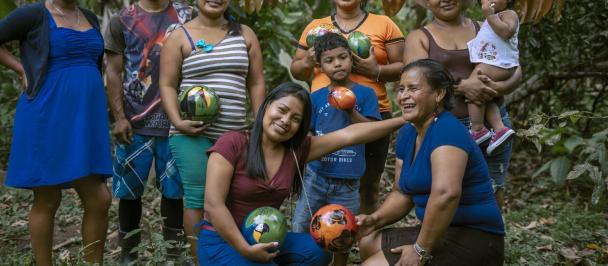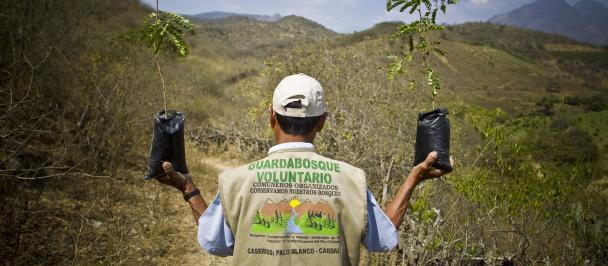Today is World Environment Day. First the bad news. In the wake of two bleak global reports – one on nature and one on climate – it is easy to be filled with despair. We are set to lose a million species within the next 30 years. We are on the brink of dangerous climate tipping points and only have about a decade to act. We are set to have more plastic in the ocean than fish biomass by 2050. These trends not only endanger our environment, they endanger our existence.
Our relationship with nature must undergo a profound shift or we will face a vastly more inhospitable and dangerous future. We must find new solutions that point toward a sustainable future. These solutions must help us combat and adapt to our climate crisis. They must help us protect and restore ecosystems and wildlife. They must help us manage natural resources – soil, timber, water – sustainably. These solutions must also be just, fair and inclusive, ensuring that no one is left behind, especially the 3.4 billion people in the world who depend on nature for their livelihood, and who are disproportionately affected.
Now for the good news – these solutions are all around us! Hundreds of communities around the world are already charting new courses for the future, finding pathways to restore and protect our planet, reduce plastic pollution, reduce and sequester greenhouse gases, avoid dangerous tipping points, and secure decent and prosperous lives. The Equator Initiative is a partnership that identifies such solutions, recognizing and celebrating local, nature-based sustainable development initiatives around the world.
This World Environment Day, we are especially proud to announce the 20 winners of this year’s Equator Prize. In recognition of the pivotal focus on climate this year, with the UN Secretary-General’s Climate Summit, and with governments around the world set to increase their ambition on climate action, the theme of this year’s prize is local, nature-based solutions.
This year’s diverse winners – from Benin to Brazil, India to Indonesia, Peru to Pakistan and beyond – demonstrate a wide range of ways to reach a sustainable future. They showcase the value of intact forests, mangroves, grasslands and peatlands, and of sustainable agricultural and agroforestry in sequestering carbon from the atmosphere and avoiding greenhouse gas emissions. They show the value of healthy ecosystems in providing food and water for a growing population, avoiding natural disasters, and sustaining livelihoods. They demonstrate new economic models to counteract the prevailing market and policy failures that have led to our current environment and climate situation. And they show how communities are using ingenuity, technology and innovation to adapt, thrive and prosper.
This World Environment Day, take a moment of respite from the daily news about biodiversity loss and our climate crisis. Take a moment to discover these bright, bold solutions that point us toward a future by visiting the Equator Initiative website. Learn about a community that has a new model for avoiding food loss in Kenya; a community of women who are planting bee-friendly trees in Cameroon to maintain pollination and food security; a community in Peru that against all odds has secured land rights and kept their forest intact; a community in Ecuador that protects the grasslands that protect their water; a community in Pakistan that has created an economic model that makes trees more valuable standing than cut down; a community in Guinea Bissau that protects more than 3,000 hectares of carbon-sequestering mangroves; an aboriginal community in Australia that is pioneering a new supply chain model; a community in Nigeria that has found a replacement for single-use plastics; and many others. Then take a moment to experience something in short supply: hope and inspiration!

 Locations
Locations



